How to Find Fossils
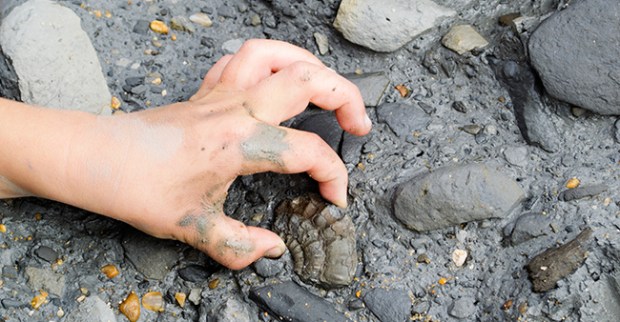
Sometimes a rock’s just a rock … and sometimes it’s a fossil. How can you tell the difference?
Research which fossils are common where you’ll be hiking
Stop by a museum or visitor center, call a local university’s geology department or search for a club of paleontologists (people who study fossils of plants and animals).
Find the right kind of rocks
Fossils are found in sedimentary rocks, like sandstone, limestone or shale. Sedimentary rocks look like layered pancakes.
Look for exposed rock
Check out stream cuts, bluffs, sea cliffs, road cuts or any place where bedrock is eroding.
Get low
You’ll see more fossils when you’re on your hands and knees. Use a magnifying lens. Form a “search image” in your mind. If you spotted ammonites at a nearby rock shop, think about what they looked like. Search for spirals and snail shapes. And remember that most fossils are small sea animals – not rare dinosaur bones.
Don’t take fossils
Leave fossils as you found them, so others can enjoy them, unless directed otherwise by local authorities. If you think you’ve found something unusual, make a careful note of its exact location — information that’s as important as the rock itself. A fossil’s location tells its story, where and how the animal lived.
FIVE EASY-TO-FIND FOSSILS
Here are five fossils that you can look for on your next hike.
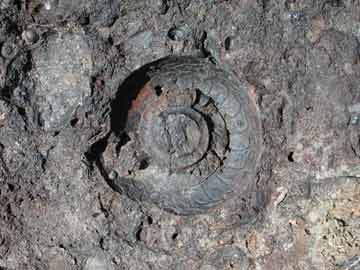 Ammonoids
Ammonoids
People in the Middle Ages called ammonoids “snake stones” because they thought the fossils were coiled snakes.
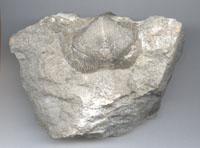 Brachiopods
Brachiopods
Scientists say most brachiopods disappeared 250 million years ago, when as much as 95 percent of ocean animals died in a mass extinction.
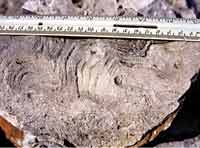 Corals
Corals
Algae lives inside the coral, giving it nutrients and oxygen.
Crinoids
This flower-shaped animal’s anus was next to its mouth.
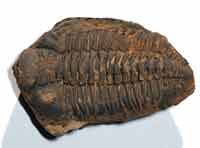 Trilobites
Trilobites
Growing trilobites crawled out of old exoskeletons through head splits, giving their fossils “facial structures.”
i found a fossil in my back yard
Mr. Evans
What about Leave No Trace ?
i found a fossil i thank it is a dinosuar bone
i live on a dirt rod and i found a very unusal fossil.
With the unfortunate drought that is occuring in the south eastern states, now is a very good time to look for fossils. I live in Georgia, and there are many sreams and creeks that are completely dried up exposing a lot of rocks you otherwise would not be able to get to or see. Also the river systems are running much lower than usual exposing a lot more of the edge shore, and in some areas you can even get to the bottom of where the water is still running. This makes for a great location as you are able to get to many older rocks that have not even been seen for years, let alone looked at in search for fossils! All along the Appalachian trail you will find dried up streams, creeks, and river beds! So the next time you go hiking, look around for those areas that look like the ground is shaped like a “V”, then you can start looking around for fossils! Good luck and Happy Hunting!
What are the more rare fossils?
ive found Crinoids
you can find fossils buried in the ground .. or a place with lots of rocks like a riverbed with no water in the mountains. and i think you clean fossils with a brush.
were do you find fossils
Thats cool how to get the fossils. But how do you clean the fossils?